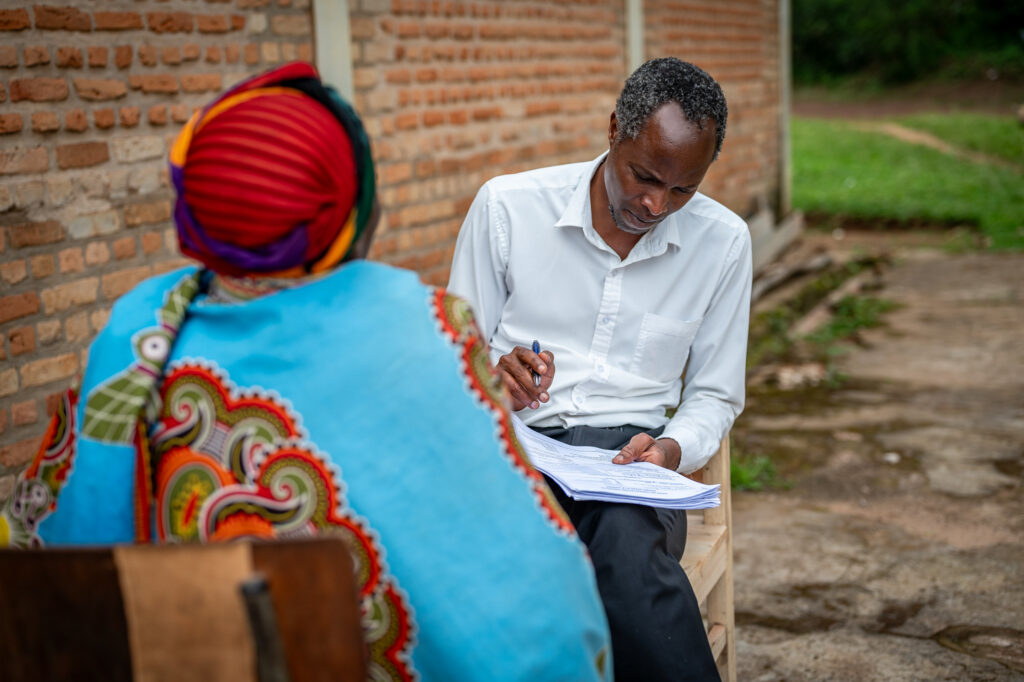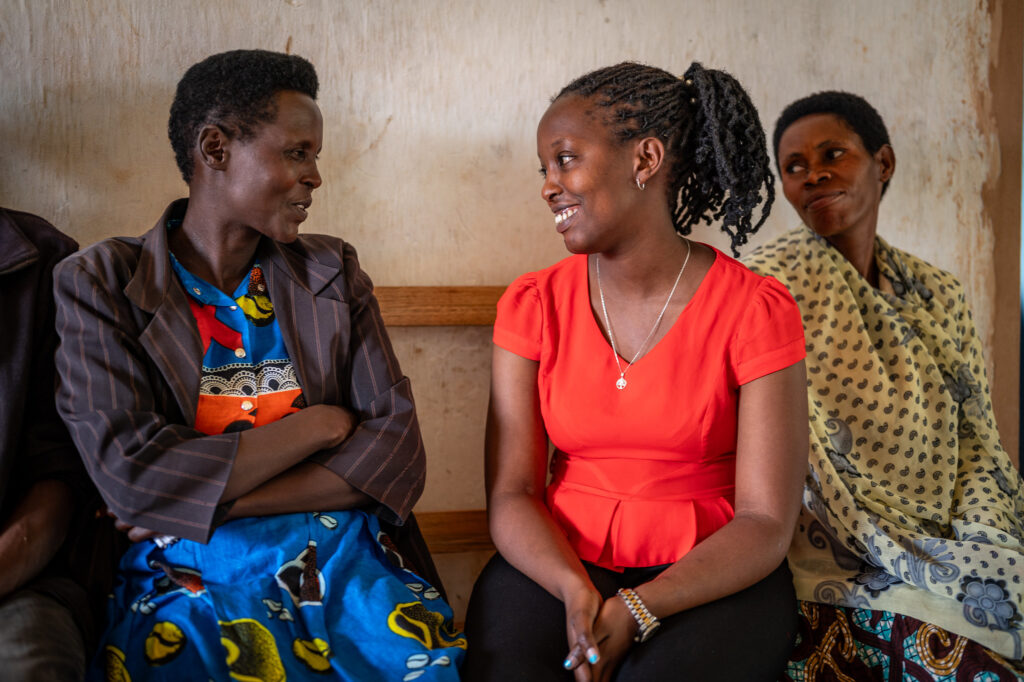As a strong advocate for gender equity, Cordaid fully endorses the 16 Days of Activism against Gender-Based Violence. In light of that global campaign, we zoom in on Burundi, where legal aid providers support survivors seeking justice.

When it comes to gender equity, Burundi can boast some astonishing stats. The number of parliamentary seats held by women (38%) is far above the world average. Labour force participation rates of women and men are practically the same. More girls complete lower secondary school than boys. Maternal mortality rates are lower than the regional average. To name just a few.
Unfortunately, that is not the whole story. Like in many parts of the world, women in Burundi have less formal work arrangements, less income, less social protection, and fewer safety nets that protect them from economic shocks. And 40% of women between ages 15 and 49 experience intimate partner violence.
Patterns of Inequality
This violence reflects broader patterns of gender inequality, including widespread domestic violence, economic abuse, forced early marriages, and harmful traditional practices. Young girls and widows are particularly at risk. And during times of conflict, unrest, and displacement, their vulnerability to violence increases.
Burundi does have laws in place to address violence against women, like the 2009 law against GBV. However, enforcement is inconsistent, and many women are unaware of their legal rights. The roads to justice are barred, either by lack of information or lack of means. And by severe social stigma. Because a woman fighting for her rights runs even more risks.
Mobile Legal Support and Awareness-Raising
To help redress this inequity, Cordaid supports women in Burundi in their struggle for justice and gender equity by running a legal support programme that reaches out to women and girls both in the capital of Bujumbura and in isolated areas and remote villages in five of the country’s 18 provinces.
The tide, which wasn’t promising for Josette, turned when she met the kind of support that comes at the right time.
The need for legal support is higher than average in these selected provinces for two reasons. First, there is a lack of prisons. Secondly, there is a lot of conflict-related displacement, which sadly comes with an increase in human rights violations.
One of the programme’s interventions is setting up legal clinics and caravans. These mobile legal support units run human rights awareness-raising and conflict-resolution campaigns. They inform villagers about their human and legal rights, court systems, and legal procedures. They support communities in trying to solve conflicts out of court. And, if legal action is the only option, they assist women who want to defend their case in court.
The Story of One Widow, the Story of Many Widows
One of these women is Josette. Her story is the story of many widows who, after losing their husbands, face additional forms of exclusion and violence. It is a story that illustrates how gender-based violence is not only sexual, physical, or emotional but can just as easily take economic and financial forms. ‘Now in her fifties and living in the province of Cibitoke, Josette’s husband died in the 2010s, leaving her behind with two daughters’, explains Jeanine Niyonsaba, one of Cordaid’s legal clinic professionals. ‘Soon after his demise, her in-laws turned against her, suddenly claiming that her husband had two extra-marital sons.’
Getting Sidelined by Men
Because of this claim, Josette and her daughters were in danger of losing both ownership and inheritance rights of their property, land, and house. A real blow, literally pushing a generational lineage of women only deeper into poverty and injustice.
‘Work still had to be done, as the opposing parties appealed against the ruling in the High Court of Cibitoke.’
Indeed, long before this case ended up in court, her in-laws started managing her property and sidelining her, a mother with two young daughters, in her household.
The tide, which wasn’t promising for Josette, turned when she met the kind of support that comes at the right time.
When the case concerning the search for paternity and alimony was assigned to the Mugina court of residence, Cordaid and its partners were organizing a legal caravan in the same town of Mugina. Legal aid providers learned about the case, started investigating it, and decided to legally assist Josette, who had never even dreamed of acquiring judicial support.
‘Legal professionals defended her case successfully. The court in Mugina ruled that the claim of the in-laws was false’, Jeanine Niyonsaba continues. ‘However, work still had to be done, as the opposing parties appealed against the ruling in the High Court of Cibitoke. With the legal clinic team on her side, Josette also won the High Court case. The ruling was final.’
One Step Closer to Living in Peace
The road was long and took concerted efforts, but Josette now has the law on her side. Her in-laws no longer have any rights to manage her property. The cherished land that gives them a home, food, and income now belongs to Josette and her daughters, de facto and de jure.
‘Without support from the legal clinic, all we had would now have been in the hands of others’, says Josette.

In the past two years, Cordaid’s access to justice programme in Burundi has provided legal support to more than 850 people, most of whom are women like Josette or Claudette, whose story we published earlier this year. Their struggle for justice took them a step or two closer to living in peace.
And together with their support teams, they also strengthened the country’s rule of law.
Watch this video about Cordaid’s Access to Justice programme in Burundi:
For privacy reasons, Josette is a fictitious name.
Photography and videography: Mickael Franci/Cordaid
